
Biting nails can be a tough habit to break, especially for girls who dream of having beautiful, healthy nails.
Whether it’s stress, boredom, or just a long-standing habit, nail biting can leave your nails looking less than their best. But don’t worry—you’re not alone, and there’s hope! Addressing this habit is essential not only for achieving those gorgeous nails you desire but also for your overall health. It’s important to stop biting your nails and explore some simple, effective ways to help you get there. Your journey to stunning, strong nails starts now!
Causes of Nail Biting
Nail biting is a common habit that many people struggle with, and it can be triggered by various factors. Firstly, stress is a major cause; when people feel anxious or overwhelmed, they often turn to nail biting as a coping mechanism. Additionally, boredom can lead to this habit. When individuals have nothing to do, they might bite their nails out of sheer idleness. Moreover, nail biting can become a deeply ingrained habit over time. For instance, if someone starts biting their nails as a child, it can persist into adulthood, becoming a hard-to-break routine. Ultimately, understanding these common causes is the first step towards finding effective strategies to stop nail biting and promote healthier nails.
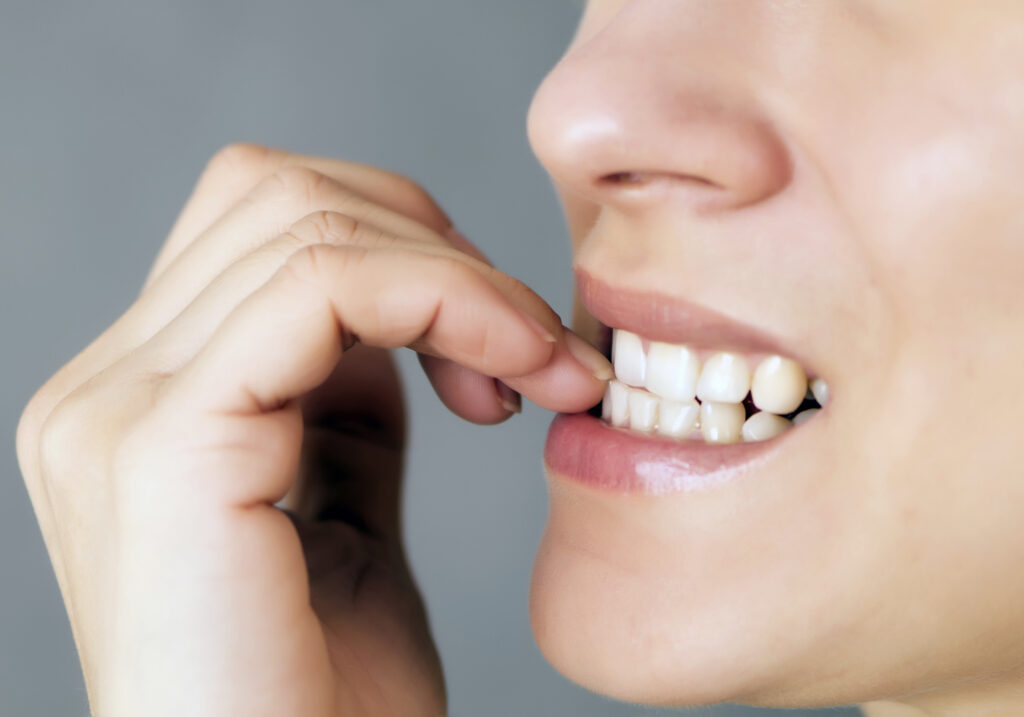
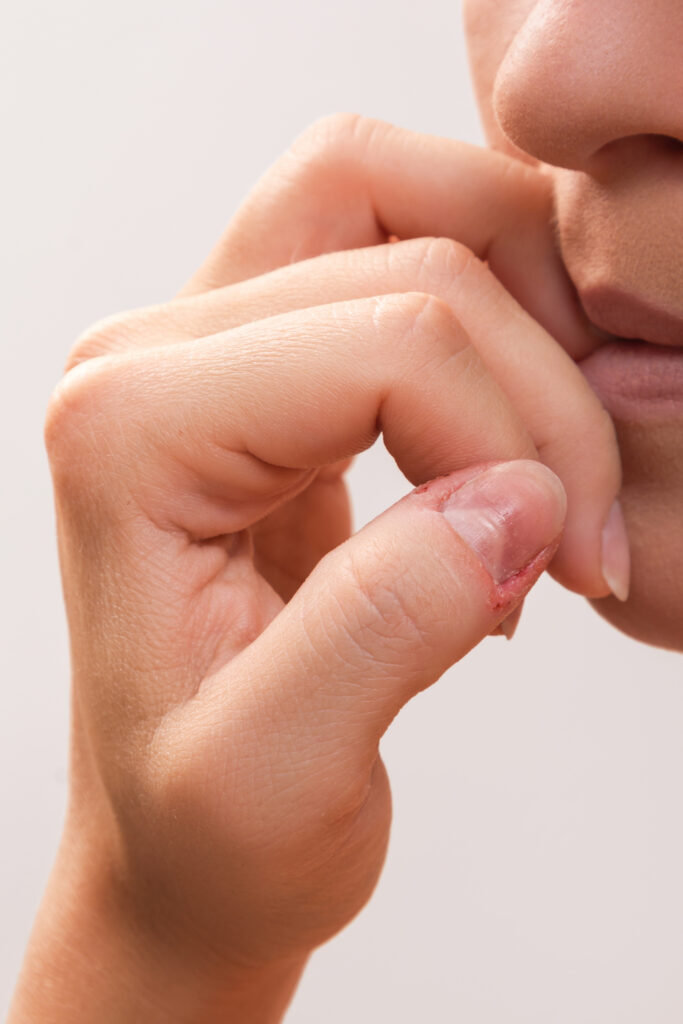
Biting Nails = Health Risks
Nail biting may seem like a harmless habit, but it can lead to several health risks. Firstly, it can cause infections. When you bite your nails, you create small cuts and tears in the skin around your nails, which can become entry points for bacteria and fungi, leading to painful infections. Additionally, nail biting can damage your teeth. The constant pressure and friction can cause chips, cracks, and even misalignment over time. Moreover, the habit can transfer germs from your fingers to your mouth, increasing the risk of illnesses. Ultimately, understanding these health risks highlights the importance of breaking the nail-biting habit to maintain both your nail health and overall well-being.
Simple Ways to Stop Nail Biting
- Keep Nails Trimmed and Neat: Regularly trimming your nails can reduce the temptation to bite them.
- Wear Gloves or Bandages: Cover your nails to make biting more difficult.
- Identify Triggers: Pay attention to what triggers your nail biting, such as stress or boredom, and find alternative coping strategies.
- Practice Stress Management: Incorporate stress-relief techniques such as deep breathing, meditation, or exercise into your routine.
- Reward Yourself: Set small goals for not biting your nails and reward yourself upon achieving them.
- Seek Professional Help: If nail biting is severe, consider talking to a therapist or counselor for additional support.
- Maintain a Healthy Nail Care Routine: Regularly moisturize your nails and cuticles to keep them healthy and less tempting to bite.
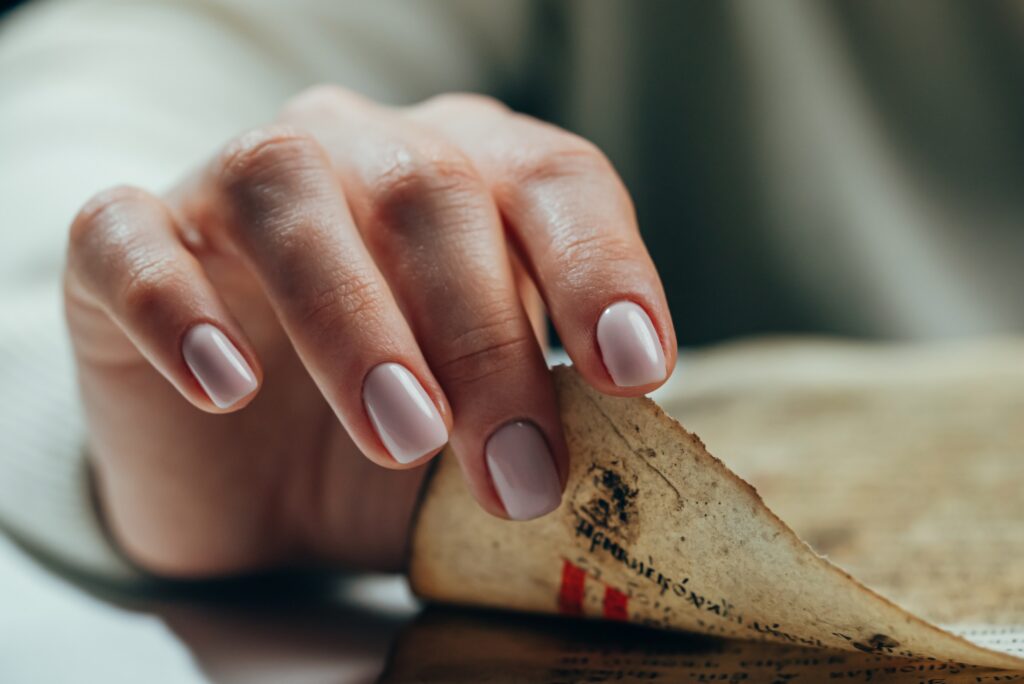
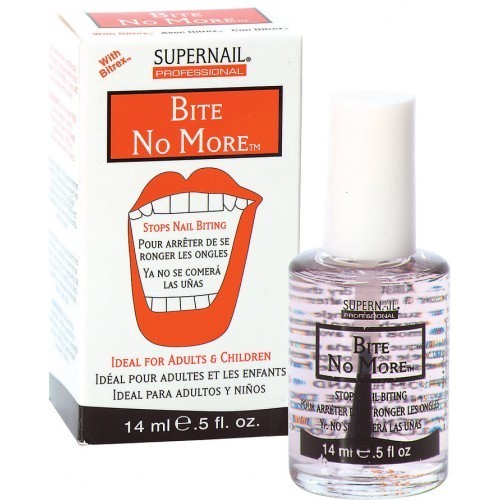
Using SuperNail Bite No More
SuperNail Bite No More contains Bitrex, a bitter-tasting ingredient that discourages nail biting by leaving an unpleasant taste.
Benefits:
- Odorless: Won’t interfere with daily activities.
- Suitable for All Ages: Ideal for both children and adults.
- Promotes Healthy Nails: Helps prevent damage and encourages nail growth.
How to Use:
- Clean Your Nails: Ensure nails are clean and dry.
- Apply the Product: Brush a thin layer onto your nails.
- Reapply as Needed: Reapply every few days or after washing hands frequently.
Tips for Best Results:
- Combine Techniques: Use alongside other behavioral strategies for best results.
- Consistency: Regular application reinforces the habit of not biting.
Alternative Habits to Replace Nail Biting
- Use a Stress Ball: Keep your hands busy by squeezing a stress ball or using a fidget toy.
- Chew Gum: Occupy your mouth with chewing gum to reduce the urge to bite your nails.
- Apply Bitter Polish: Use nail polish with a bitter taste to discourage biting.
- Use Cuticle Oil or Cream: Keep nails smooth and hydrated to minimize the urge to bite.
- Hold a Pen or Pencil: Keep a pen or pencil in hand as a substitute for nail biting.
- Start a New Hobby: Engage in hobbies like knitting or drawing to keep your hands occupied.
- Practice Mindfulness: Be aware of triggers and utilize breathing exercises to manage stress.
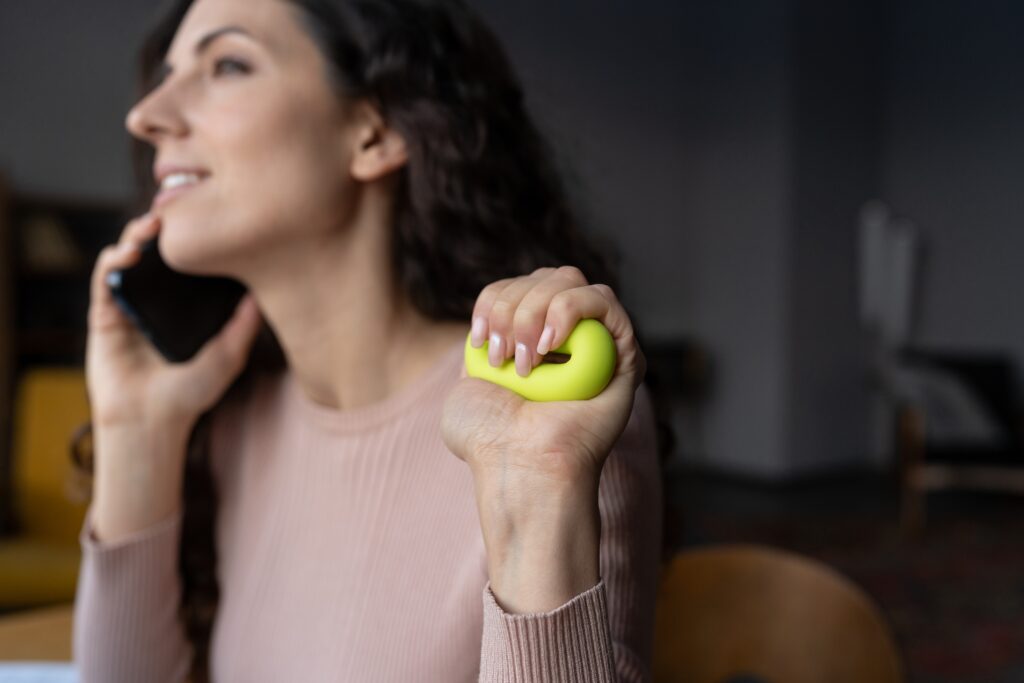
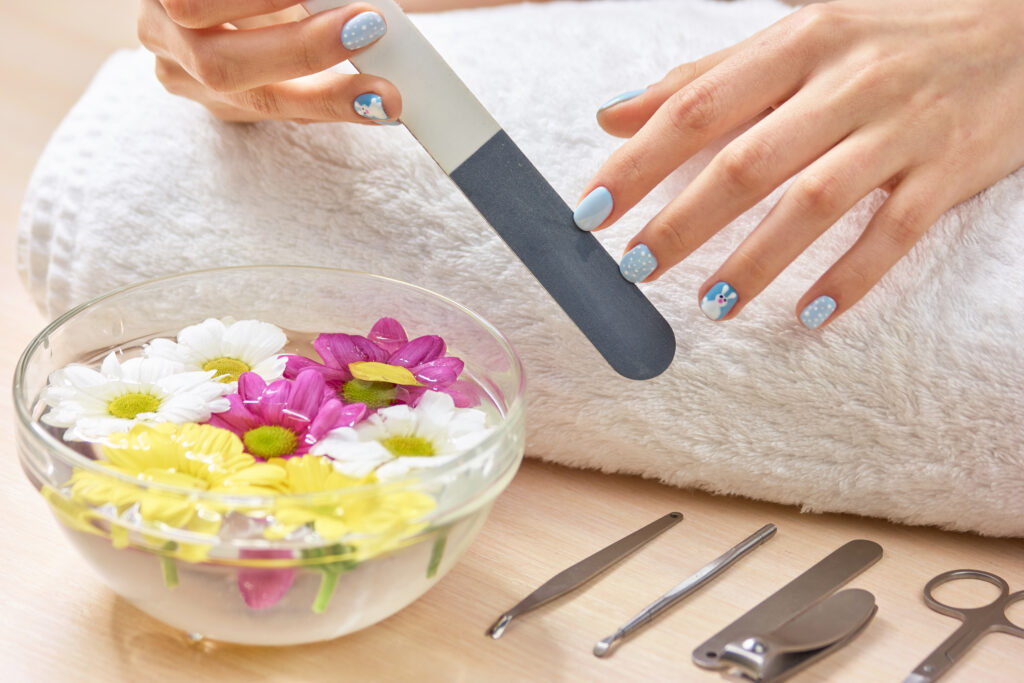
Nail Care Tips
Caring for your nails properly is essential not only for maintaining their health but also for discouraging biting. First and foremost, regularly trimming your nails can prevent them from becoming too long or ragged, which often triggers the urge to bite. Additionally, keeping your nails moisturized with cuticle oil or hand cream helps to maintain a smooth surface, reducing the temptation to pick at or chew them. Moreover, by filing your nails regularly, you can avoid sharp edges that may lead to snags, further promoting healthy growth.
Finally, treating yourself to regular manicures not only enhances the appearance of your nails but also serves as a visual reminder to keep them looking their best, making you less likely to bite. With these simple yet effective habits, you’ll strengthen your nails and break the cycle of biting.
FAQ
Alternatives include using a stress ball, chewing gum, applying bitter-tasting polish, or keeping nails trimmed and moisturized. Keeping your hands and mind busy can help break the habit.
Regular trimming, moisturizing, and filing nails can prevent rough edges and promote healthy growth, reducing the temptation to bite. Well-maintained nails are also less likely to trigger the habit.
Applying cuticle oil, hand cream, and using strengthening nail treatments like Essie Treat Love & Color can improve nail health, making them less brittle and less tempting to bite
While not necessary, bitter-tasting nail polish can be a helpful deterrent for many people. The unpleasant taste reminds you to stop when you unconsciously start to bite.
Squeezing a stress ball, holding a pen, or starting a new hobby like knitting or drawing are great alternatives to keep your hands busy and prevent nail biting.

